Pope Francis in the Holy Land: 5 things to know
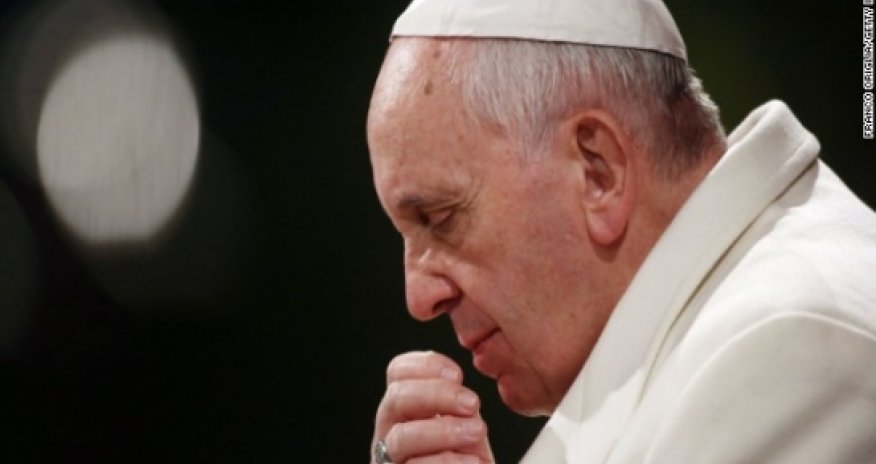
It might sound like the start of a trite joke, but it’s actually the entourage for one of the most highly anticipated papal trips in recent history.As Pope Francis heads to Jordan, Bethlehem and Jerusalem this weekend, he’s bringing along two old friends from Argentina: Rabbi Abraham Skorka, who co-wrote a book with the Pope, and Sheikh Omar Abboud, who leads Argentina’s Muslim community.The Vatican says it’s the first time that a pope’s official entourage has included interfaith leaders.In a region roiled by competing religious and political visions, Francis’ chosen companions communicate an unmistakable message, church officials said.“It’s highly symbolic, of course,” said the Rev. Thomas Rosica, a consultant to the Vatican press office.“But it also sends a pragmatic message to Muslims, Christians and Jews that it’s possible to work together - not as a system of checks and balances but as friends.”The visit to the Holy Land is the first for Francis as leader of the Roman Catholic Church, and just the fourth for any pontiff in the modern era.With so much at stake - the stalled negotiations between Israelis and Palestinians, the plight of Christian refugees - the Pope’s every word, gesture and photo-op will be microscopically examined.Already, some conservative Israelis are advocating against the Pope’s visit, scrawling anti-Christian graffiti on Catholic buildings in Jerusalem and planning protests outside papal events in Jerusalem.While the protesters form a fringe minority, they underscore the tensions that simmer around the Pope’s short but substantial trip.With those challenges in mind, here are five key things to pay particular attention to.1. The Pope’s schedule makes Rick Steves look lazy.It’s a good thing the 77-year-old pontiff rested up this week.Francis will be traveling to three cities, shaking hands with dozens of religious and political leaders, celebrating two Catholic Masses and delivering at least 13 speeches – all in less than 36 hours.In Jordan, the Pope will meet with King Hussein, greet refugees from Iraq and Syria, celebrate Mass and visit the Jordan River, where many Christians believe Jesus was baptized.In Bethlehem, he will convene with the President of the Palestinian Authority, celebrate Mass in Manger Square, lunch with Palestinian families, greet children from refugee camps and visit the site of Jesus’ birth.In Jerusalem, the Pope will meet the city’s grand mufti and chief rabbis, visit the Western Wall and Yad Vashem (a memorial to the Holocaust), lay a wreath on the grave of the founder of modern Zionism, and sign a joint declaration with the head of Eastern Orthodox Christians.He’ll also confer with Israel’s Prime Minister and President, chat with Catholic seminarians and celebrate Mass at the site of the Last Supper.Got all that?“I’m amazed at what they are trying to do in such a short amount of time,” Rosica said.2. The Pope says the trip is religious, not political.Francis has called the reasons behind his Holy Land excursion “strictly religious.” Earlier, he had described it as a “pilgrimage for prayer.”Perhaps the popular pontiff was trying to tamp down expectations that his visit could solve the region’s seemingly intractable political problems. But the trip does have religious roots, church officials say.At the Pope’s installation in 2013, Ecumenical Patriarch Bartholomew, the spiritual leader of some 300 million Orthodox Christians worldwide, invited Francis to Jerusalem to mark the 50th anniversary of a historic meeting between their predecessors.“It’s hard to understand now what a breakthrough that meeting was,” said the Rev. Alexander Karloutsos, an Eastern Orthodox priest who is helping organize part of the Pope's trip.At the time, the Roman Catholic and Eastern Orthodox Churches, the world’s two largest Christian communities, weren’t even on speaking terms, said Karloutsos. Marriages celebrated in one church would not be recognized by the other.On Sunday, Francis and Bartholomew will sign a joint declaration outlining common principles and a potential path forward to greater unity.“These people don’t sign things lightly,” Karloutsos said. “This is a very substantial document.”Francis and Bartholomew also will celebrate a joint religious service at the Church of the Holy Sepulchre in Jerusalem on Sunday, the first time the Eastern Orthodox and Roman Catholic leaders have held such a service in 50 years, according to Karloutsos.3. The ‘people’s Pope’ will strike againHe has celebrated Masses for migrants who drowned while trying to sail to Europe, visited Brazil’s most dangerous neighborhoods and welcomed homeless men in Rome to his birthday party.In the Holy Land, Pope Francis is again expected to draw the world’s attention to the poor and downtrodden and has refused to travel, as most leaders do in the Middle East, in an armored car.In Jordan, where some 600,000 Syrians have fled since the start of the civil war in 2011, the Pope will meet refugees and disabled young people before delivering a speech at a church in Bethany.On the West Bank, he will greet children from several Palestinian refugee camps.Palestinian Archbishop Atallah Hanna, who is Eastern Orthodox (as are most Christians in the Middle East) said he hopes Pope Francis will “see the suffering of the Palestinian people.”“We are misrepresented and are unfortunately seen by some to be criminals and terrorists and that our people actually enjoy blood, murder and violence,” Hanna said.“I hope they can see that we are a civilized, peaceful and well-educated people seeking freedom and a better future.”John Esposito, an expert on Christian-Muslim relations at Georgetown University, said the Pope’s meeting with Christians in Bethlehem could open some eyes.“It will underscore the fact that it’s not just a Muslim-Jewish conflict,” he said.4. Conservative Israelis are nervous.In the weeks before the Pope’s arrival, graffiti calling Jesus “garbage” and calling for “death to Arabs and Christians” has been scrawled on Christian buildings in Jerusalem.Ultra-Orthodox Jews have planned to protest outside the site of the Last Supper - known as the Cenacle - because it is also said to house King David’s tomb.They believe Christians should not hold religious services, as Pope Francis plans to do on Sunday, so close to a Jewish holy site, and they worry that Israel will turn the Cenacle over to the Vatican during the Pope’s visit, according to reports.On Wednesday, Israeli police issued restraining orders on several right-wing Jewish activists, according to The New York Times, ordering them to stay away from the Pope during his visit.Rabbi David Rosen, international director for interreligious affairs at the American Jewish Congress, told CNN that the troublemakers are fringe figures who “don’t deserve anything like the attention they’ve gotten.”“The vast majority of Israelis are looking forward to the Pope’s visit, if they’re even aware of it yet,” said Rosen.The rabbi said he is slightly chagrined, though, that Francis will not hold an interfaith service with Muslim and Jewish leaders in Jerusalem, as Pope Benedict XVI did in 2009.“I am personally disappointed that this opportunity to demonstrate in actions and not simply in words the possibility of bringing together Christians, Muslims and Jews is not on his schedule.”The Vatican says that, because the Pope is traveling with Rabbi Skorka and Sheikh Abboud, the whole trip is essentially an interfaith gathering.5. Muslims view Francis as a welcome change.Pope Benedict XVI didn’t have the best relationship with Muslims, said Georgetown's Esposito, who is traveling to Jordan to meet with Francis on Saturday.The former Pope quoted anti-Islamic remarks made by a 14th-century Christian emperor in a speech in 2006, leading to Muslim riots.Benedict apologized, but later baptized a prominent Muslim-born journalist, which some Islamic leaders called an unnecessary provocation.In contrast, one of Francis’ first interfaith steps as Pope was to wash the feet of two Muslims during a Holy Thursday ceremony in 2013, a move noted throughout the Islamic world, Esposito said.“What popes do is as symbolically important as what they say,” Esposito said, “and Muslims have been very impressed with Francis.”The Pope also called on Western nations to find a peaceful solution to Syria’s civil war, rather than use military force.On this trip to the Holy Land, Francis is expected to call for a Palestinian state, which has long been Vatican policy, but will surely upset some Israelis.That can't-please-both dilemma shows how hard it can be to navigate the Holy Land for any world leader, even one with the charisma and political acumen of Francis.Bringing a sheikh and rabbi along may help buffer the Pope from some criticism, but ultimately, all eyes will be on the man in white.(CNN)Bakudaily.az
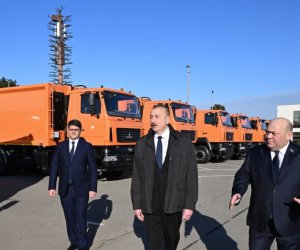


























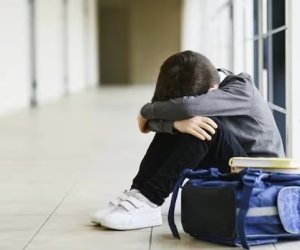

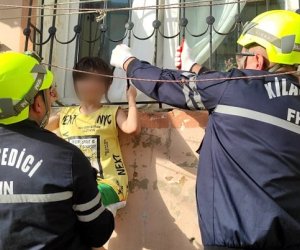
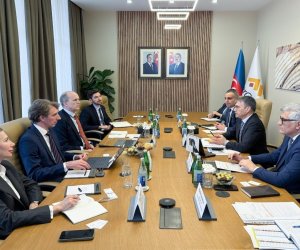
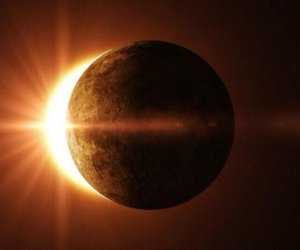




 Photo
Photo 



 Video
Video 

